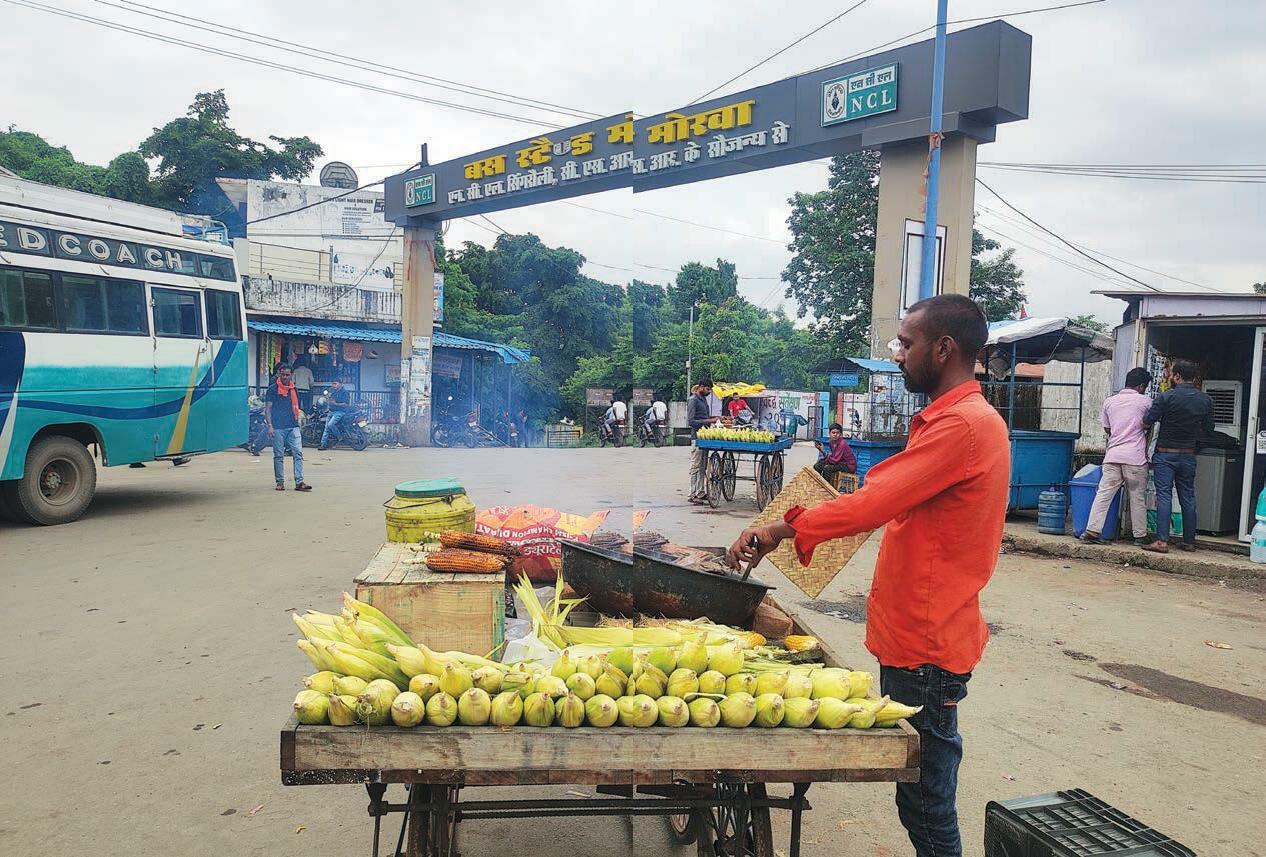Essayer OR - Gratuit
Relocate, resettle, repeat
Down To Earth
|October 01, 2025
How India's largest displacement exercise unfolds in a district much displaced

THIS IS the sixth displacement I face in the past six decades,” complains Bhagwan Prasad. “The first time I had to move was during the construction of Rihand dam in Uttar Pradesh’s Sonebhadra district in 1954. In 1962, I had to move again because they miscalculated the catchment area of the dam’s reservoir and our house faced threat of submergence. I then moved to the adjacent Singrauli district in Madhya Pradesh. In 1977, I was forced to move again, at a notice of just 15 days, when they planned the Singrauli Super Thermal Power Plant. This time, I moved to Khadia village in the same district. After that, I had to move two more times to make way for one developmental project or the other,” says 82-year-old Prasad, who used to be a farmer but became a labourer due to frequent displacements. “Now I am too weak to work and live with my grandson. We have been asked to move to allow expansion of Jayant coal mines. Where will we go,” he asks.
Prasad is now a resident of Kathas village in Singrauli. He is also one of an estimated 0.1 million people who have to vacate their houses in the country’s largest displacement exercise underway in Singrauli’s biggest town Morwa (which has a population of 0.1 million) and about 10 surrounding tribal villages (estimated population of 3,500), including Kathas.
Singrauli sits atop a coal-rich belt discovered by the British in the 1800s and now mined by Northern Coalfields Ltd (NCL), a subsidiary of government-owned Coal India Ltd. The Singrauli coal fields (from which the district gets its name) are spread over 2,202 sq km in Madhya Pradesh and Uttar Pradesh and include two basins—the Moher sub-basin (312 sq km) and the Singrauli main basin (1,890 sq km). Till now, mining has been done only in the Moher sub-basin, but NCL plans to mine the entire fields which have 11 mine blocks, one of them being Jayant.
Cette histoire est tirée de l'édition October 01, 2025 de Down To Earth.
Abonnez-vous à Magzter GOLD pour accéder à des milliers d'histoires premium sélectionnées et à plus de 9 000 magazines et journaux.
Déjà abonné ? Se connecter
PLUS D'HISTOIRES DE Down To Earth

Down To Earth
Bitter pill
THE WEB SERIES PHARMA EXPOSES HARSH TRUTHS OF THE PHARMACEUTICAL INDUSTRY, WHERE PROFIT OFTEN BECOMES MORE IMPORTANT THAN HUMAN HEALTH
3 mins
January 16, 2026

Down To Earth
CHAOS IN-DEFINITION
The Aravallis are perhaps India's most litigated hill range. More than 4,000 court cases have failed to arrest their destruction. The latest dispute concerns a narrow legal definition of this geological antiquity, much of which has been obliterated by mining and urban sprawl. While the Supreme Court has stayed its own judgement accepting that definition, it must see the underlying reality and help reconcile development and national security with conservation.
19 mins
January 16, 2026

Down To Earth
BITS: INDIA
Indore has recorded 16 deaths and more than 1,600 hospitalisations between December 24 and January 6.
1 min
January 16, 2026

Down To Earth
GUARANTEE EXPIRES
India's rural employment guarantee law is replaced with a centrally controlled, budget-capped scheme. Is this an attack on the right to work?
3 mins
January 16, 2026

Down To Earth
BLOOM OR BANE
Surge of vibrant pink water lilies in Kuttanad, Kerala, provides socio-economic benefits, but the plant's ecological impacts must be understood
4 mins
January 16, 2026

Down To Earth
INVISIBLE EMPLOYER
Field and academic evidence shows sharp falls in casual agricultural employment at places where groundwater access declines
3 mins
January 16, 2026

Down To Earth
Schemed for erasure
Does the VB-G RAMG Act address structural weaknesses long observed in MGNREGA's implementation?
10 mins
January 16, 2026

Down To Earth
School of change
An open school in Panagar, Madhya Pradesh, aims to protect children of tribal settlements from falling into the trap of addiction
2 mins
January 16, 2026

Down To Earth
PULSE OF RESILIENCE
As a climate-ready crop, cowpea shows potential for widespread use in India
3 mins
January 16, 2026
Down To Earth
BITS GLOBAL
Britain recorded its hottest and sunniest year ever in 2025, the country's meteorological office said on January 2.
1 min
January 16, 2026
Listen
Translate
Change font size
